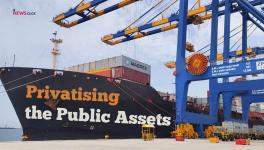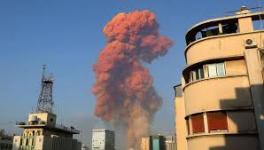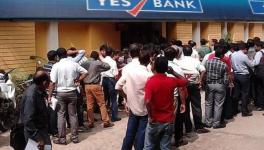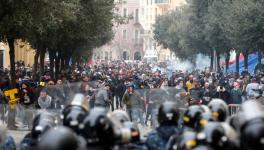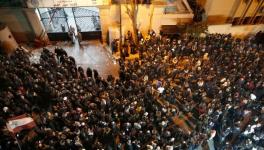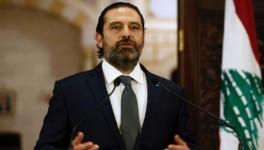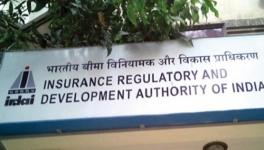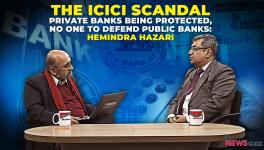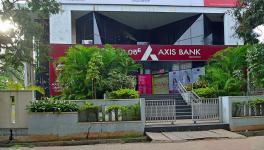Lebanese Pound Crashes as Protests Mount Amid Economic and Financial Crisis
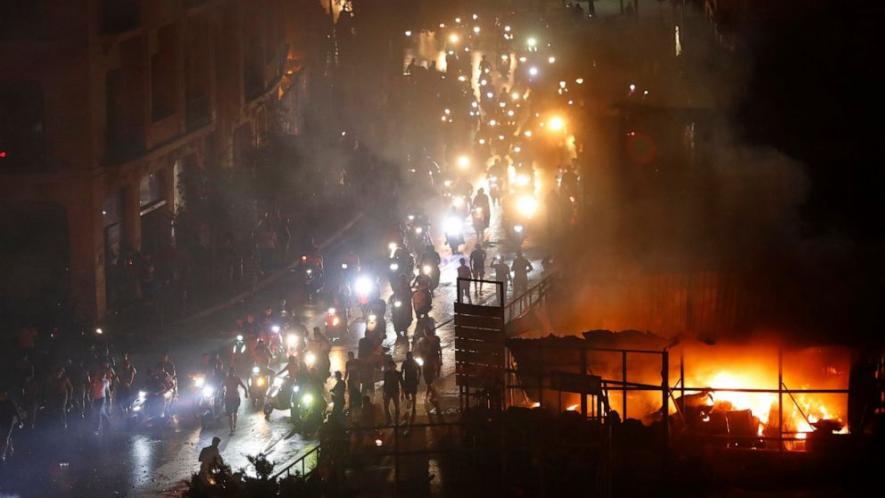
Image Courtesy: ABC News
Beirut: Lebanon's money changers said the country's central bank agreed on Friday to inject fresh dollars into the market to prop up the national currency following a night of protests spurred by the dramatic plunging of the Lebanese pound.
The protests saw attacks on several bank branches, and the tumbling of the currency prompted an emergency Cabinet meeting on Friday.
Despite previous efforts to control the currency depreciation, the Lebanese pound sold for more than 6,000 to the dollar Thursday on the black market, down from 4,000 in recent days. The pound had maintained a fixed rate of 1,500 to the dollar for nearly 30 years.
Mahmoud Halawa, head of the money changers union, said the central bank governor promised to inject a sufficient amount of dollars into the market for importers and regular citizens. Security forces would also crack down on the black market or any money changers selling above a set rate of 3,940 to the dollar, Halawa said.
It was not clear whether there are enough dollars available to stop the local currency depreciation. Halawa said fresh dollars would mostly come from money transfer bureaus.
The currency crash comes during a historic economic and financial crisis facing the small Mediterranean country and appeared to reflect the growing shortage of foreign currency.
It also signaled panic over new US sanctions that will affect neighbouring Syria in the coming days and a lack of trust in the government's management of the crisis.
Protesters poured into the streets on Thursday over the rising dollar price in a country dependent on imports and where people have for years used the dollar and the local currency interchangeably.
The demonstrators shut down roads in several parts of the country and burned tyres.
In central Beirut, crowds pelted police and soldiers with rocks and smashed some storefronts, drawing volleys of tear gas. Some protesters allegedly set fire to a private bank nearby.
In the country's north and south, some private banks were attacked in an expression of anger at their perceived role in deepening their economic malaise.
“Three glass windows were broken in the front and the back, the fridge and the phones. And they broke the photocopy machines and the chairs. ... I am not sure yet what is the estimated material loss," said the owner of a travel agency in downtown Beirut.
Security forces reopened blocked roads early on Friday and calm was restored. Prime Minister Hassan Diab canceled his schedule and called for an emergency meeting to discuss the crisis. Riad Salameh, the central bank governor who has been singled out by Diab for his mishandling of the situation, was taking part.
The renewed demonstrations amid calls for Diab's resignation are a huge challenge for the prime minister who took over after his predecessor, Saad Hariri, resigned amid nationwide protests late last year. Diab's government is supported by the Shiite group Hezbollah and its allies and has been weakened by the crisis. Other protesters called for Salameh to resign.
The heavily indebted Lebanese government has been in talks for weeks with the International Monetary Fund after it asked for a financial rescue plan but there are no signs of an imminent deal.
Lebanon's financial problems predate the virus pandemic that put the country in lockdown for months, further compounding the crisis. Years of corruption and mismanagement have left Lebanon with depleted resources, while shrinking investment in the war-riddled region and falling remittances from Lebanese abroad only increased the shortage of foreign capital.
Get the latest reports & analysis with people's perspective on Protests, movements & deep analytical videos, discussions of the current affairs in your Telegram app. Subscribe to NewsClick's Telegram channel & get Real-Time updates on stories, as they get published on our website.









